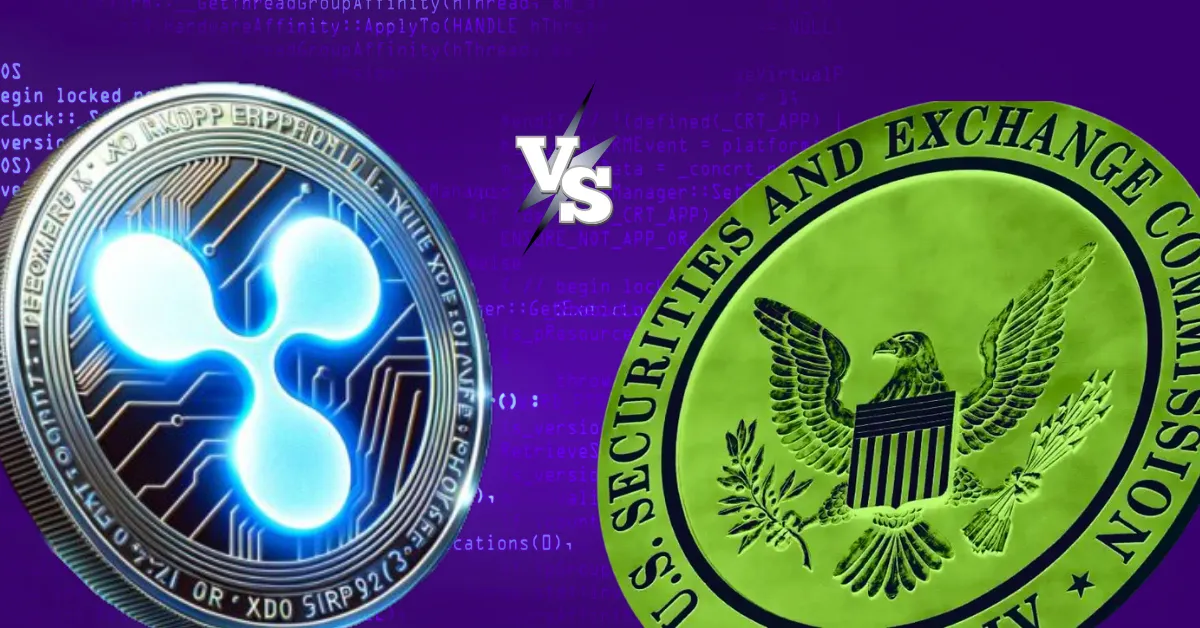
The long-running Ripple vs. SEC battle has finally reached a conclusion, and the outcome could reshape the crypto industry.
Ripple Labs has agreed to settle with the U.S. Securities and Exchange Commission, ending a legal fight that has lasted for years. As part of the settlement, Ripple will pay a reduced fine of $50 million. But the real headline is this: the SEC has officially acknowledged that XRP is not a security when traded on public exchanges.
XRP is now the only cryptocurrency with clear legal recognition in the United States. And that could open the door to serious institutional adoption.
Originally, Ripple was ordered to pay a $125 million fine. But under the new agreement, the company will pay just $50 million, with $75 million being returned. Ripple and the SEC will ask the court to lift the previous injunction, closing the case and canceling any ongoing appeals.
The SEC made it clear in its statement that settling the case doesn’t mean it was wrong in its approach. Instead, it says this move reflects a shift in how it plans to handle crypto regulation going forward.
It also stressed that this settlement applies only to Ripple and won’t affect other enforcement actions in the crypto space.
Italian crypto expert Fabio Zuccara believes the U.S. government’s approach to crypto is becoming more constructive. He said the Biden administration, once viewed as destructive to the industry, now seems to be taking a more balanced approach.
Zuccara also pointed out that several crypto-related lawsuits have recently been dropped, further suggesting a change in direction from regulators.
The news has caused a major surge in XRP trading activity. The daily trading volume spiked from $1.2 billion to $4.2 billion, and the price climbed rapidly:
In total, XRP has gained nearly 11.92% since May 8, and is up 7.6% over the last seven days.
Zuccara states that XRP now holds a unique advantage as the only crypto with legal clarity in the U.S.—a factor that may boost institutional investment and corporate adoption.
With the lawsuit behind them, Ripple is expected to resume global expansion, focusing on cross-border payments and liquidity solutions using XRP.
Earlier reports suggested the legal fight had distracted Ripple from its core business operations, but the company can now refocus on innovation and growth.
Ripple’s legal clarity is already paying off. Recently, CFTC-regulated XRP futures products were launched in the U.S., signaling increased institutional confidence in the digital asset.
The Ripple-SEC settlement marks a historic turning point in U.S. crypto regulation. With XRP now legally recognized and regulated, it opens a new path for other crypto firms seeking similar clarity.As regulatory uncertainty fades, Ripple is poised for global growth, and XRP may emerge as the go-to digital asset for institutions and enterprises alike.
Yes, the XRP lawsuit is effectively over, with both Ripple and the SEC moving to end all legal proceedings and appeals.
XRP is gaining momentum post-lawsuit, with rising institutional interest, legal clarity, and price surges.
No, the SEC did not admit wrongdoing; the settlement reflects a strategic shift in its crypto enforcement approach.
Ripple Labs-backed XRP gained 5 percent in the past 24 hours to trade above $3.04…
The United States House of Representatives has voted to advance three major crypto bills on…
Ozak AI, a project operating at the intersection of artificial intelligence and blockchain technology, is…
Get ready to revolutionize your gaming experience. Casino.TG, the first truly native Telegram casino, has…
A new viral memecoin, which costs less than $0.002, is garnering significant attention in the…
Cardano (ADA) delivered one of the most iconic rallies in recent crypto history, skyrocketing from…